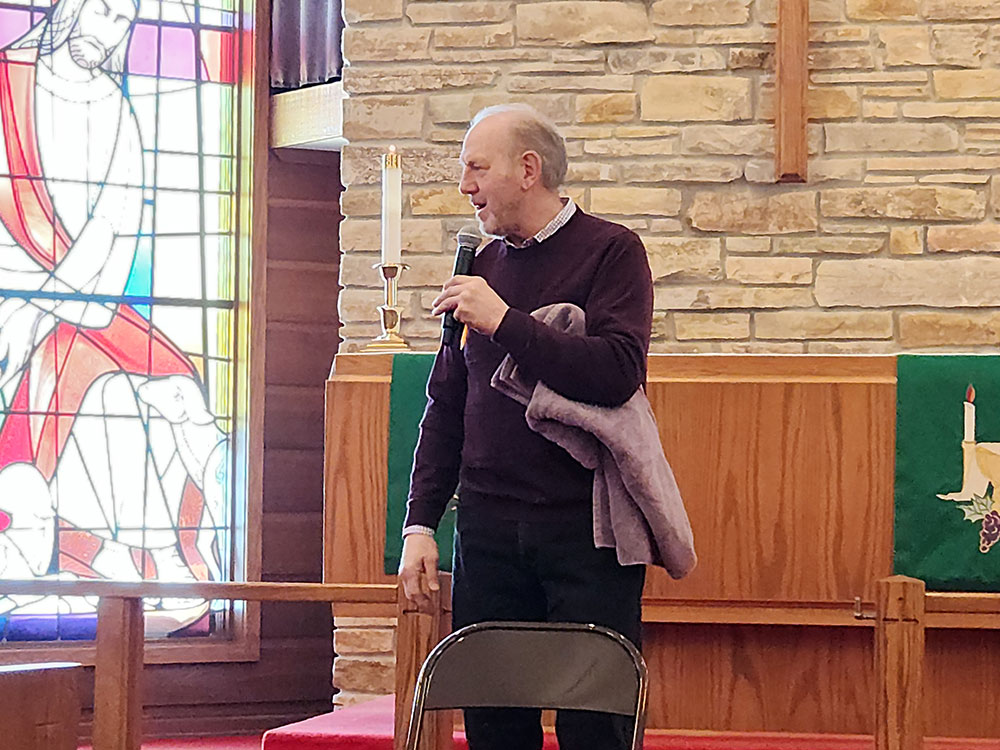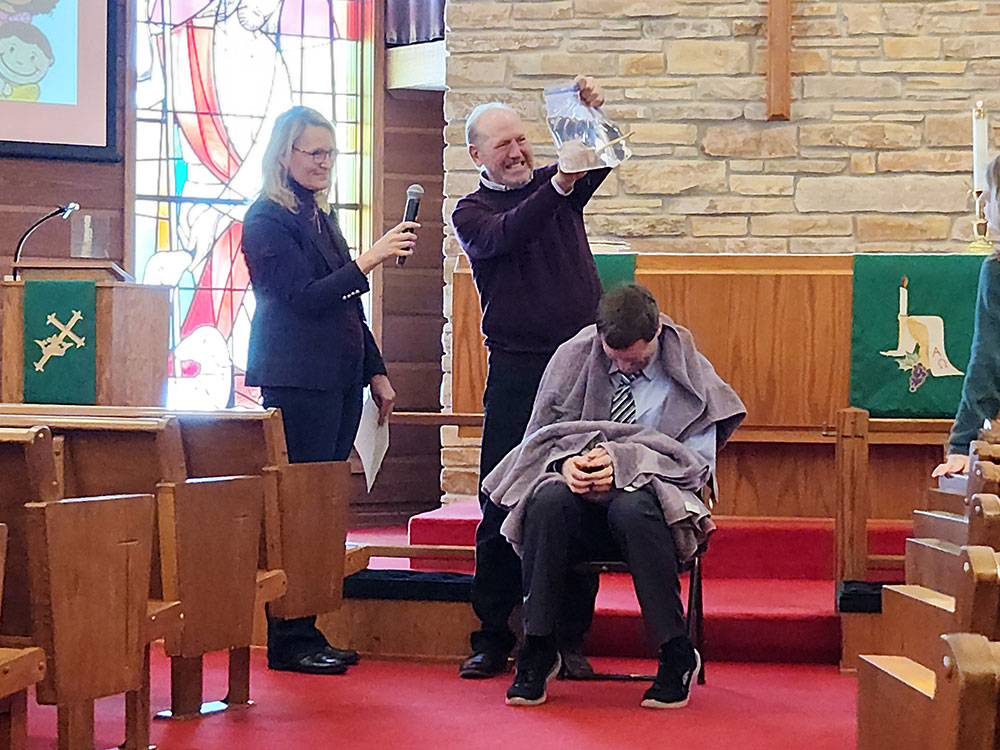 Sunday, December 1, First Sunday in Advent, Luke 21:25-36. The King Shall come. Jesus is coming again as King of kings and Lord of lords to judge the living and the dead. There are different views within the Christian community of how and when the events surrounding His return will occur. As we celebrate the Lord’s promise to come again, we will explore these different viewpoints and what the Bible actually says.
Sunday, December 1, First Sunday in Advent, Luke 21:25-36. The King Shall come. Jesus is coming again as King of kings and Lord of lords to judge the living and the dead. There are different views within the Christian community of how and when the events surrounding His return will occur. As we celebrate the Lord’s promise to come again, we will explore these different viewpoints and what the Bible actually says.
 Sunday, December 8, Second Sunday in Advent, Luke 3:1-1-20. Genuine Repentance. John the Baptist prepared the way for Jesus by calling the people to repent and be baptized for the forgiveness of sins. But he added that those whose hearts were sincere would show it by bearing fruit in keeping with repentance. Genuine repentance results in a change of heart, a change of mind, and a change of life. We must bear fruit in keeping with repentance.
Sunday, December 8, Second Sunday in Advent, Luke 3:1-1-20. Genuine Repentance. John the Baptist prepared the way for Jesus by calling the people to repent and be baptized for the forgiveness of sins. But he added that those whose hearts were sincere would show it by bearing fruit in keeping with repentance. Genuine repentance results in a change of heart, a change of mind, and a change of life. We must bear fruit in keeping with repentance.
 Sunday, December 15, Third Sunday in Advent, Luke 7:18-28, Are You the One, or Should We Look for Another? As John the Baptist languished in prison, he found himself wondering if Jesus was really the One the prophets wrote about. He struggled because what he heard about Jesus and what he himself preached concerning the one who was to come didn't match up the reports he was getting. So, he set some of his disciples to ask Jesus if He was indeed the One. Jesus' answer made it clear that He was. Jesus is not "one of the . . ." but THE ONE. We need not, nor should we, look for or to another.
Sunday, December 15, Third Sunday in Advent, Luke 7:18-28, Are You the One, or Should We Look for Another? As John the Baptist languished in prison, he found himself wondering if Jesus was really the One the prophets wrote about. He struggled because what he heard about Jesus and what he himself preached concerning the one who was to come didn't match up the reports he was getting. So, he set some of his disciples to ask Jesus if He was indeed the One. Jesus' answer made it clear that He was. Jesus is not "one of the . . ." but THE ONE. We need not, nor should we, look for or to another.
 Sunday, December 22, Fourth Sunday in Advent, Luke 1:39-56. Learning From Mary’s Song. Mary’s song, also known as the Magnificat, is an inspiring piece of Scripture. Her words are profound in the face of what she was about to do. We don’t know what she was thinking regarding the pregnancy. We don’t have a written word that describes her fear of what others will think or how they will treat her. All we have are these magnificent words that reveal her praises to God. As we look at the Magnificat together, we will ask what Mary's song teaches us about our own walk with the Lord.
Sunday, December 22, Fourth Sunday in Advent, Luke 1:39-56. Learning From Mary’s Song. Mary’s song, also known as the Magnificat, is an inspiring piece of Scripture. Her words are profound in the face of what she was about to do. We don’t know what she was thinking regarding the pregnancy. We don’t have a written word that describes her fear of what others will think or how they will treat her. All we have are these magnificent words that reveal her praises to God. As we look at the Magnificat together, we will ask what Mary's song teaches us about our own walk with the Lord.
 Sunday, December 29, First Sunday After Christmas, Colossians 3:12-17. Fare Well. This will be Pastor Todd’s final Sunday before his retirement. His final message will be based on these words of the Apostle Paul to the Colossians. As the congregation applies these words in its life together, all will fare well as we continue our journey with Christ.
Sunday, December 29, First Sunday After Christmas, Colossians 3:12-17. Fare Well. This will be Pastor Todd’s final Sunday before his retirement. His final message will be based on these words of the Apostle Paul to the Colossians. As the congregation applies these words in its life together, all will fare well as we continue our journey with Christ.
Children's Message
 |
 |




